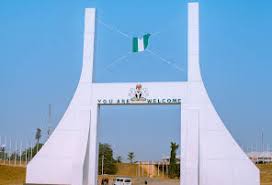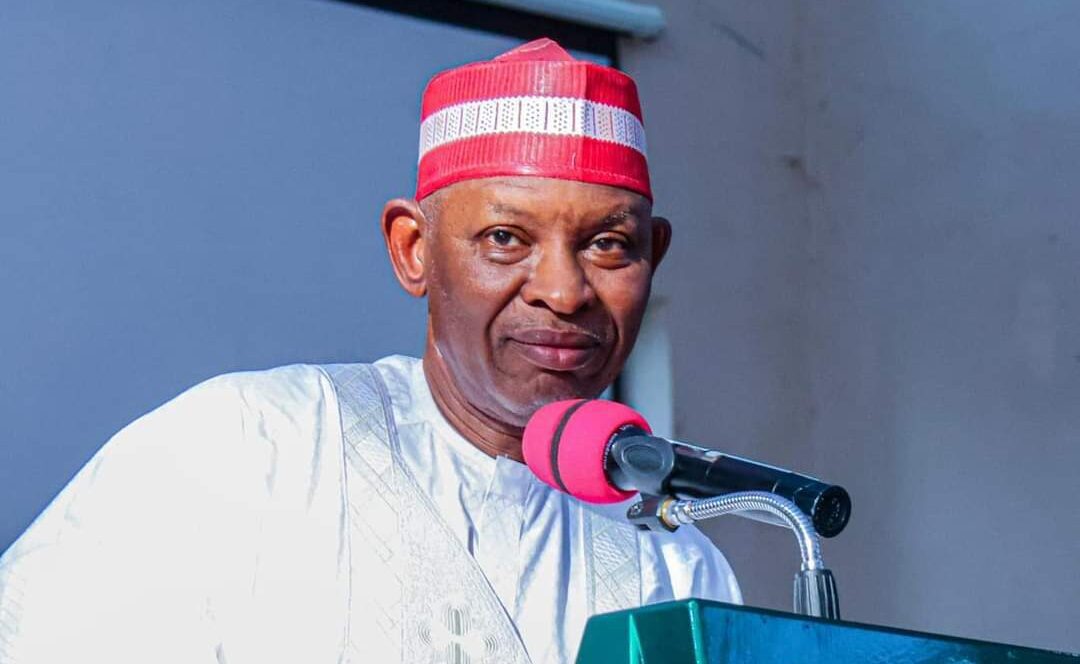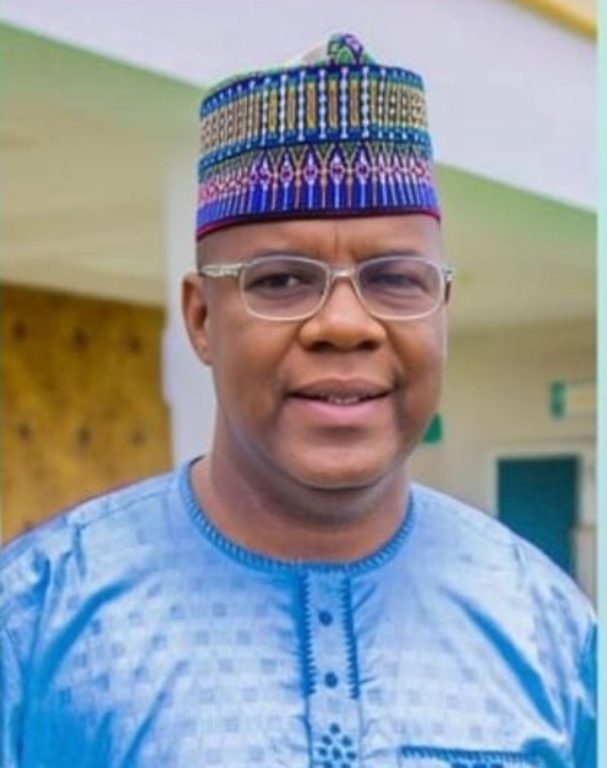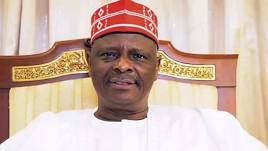By Ehichioya Ezomon
There’s a saying: “If it looks like a duck, walks like a duck, swims like a duck, and quacks like a duck, then it probably is a duck.”
This appears to summarise section 299 of Nigeria’s amended 1999 Constitution that designates the Federal Capital Territory, Abuja, “as if it were one of the States of the Federation.” That’s, if the FCT mimicks a State, then it’s a State!
This is one of the knotty issues that Justices of the Presidential Election Petitions Court (PEPC) are called upon to untie, by not mere application of the laws, but doing substantial justice to all parties before them.
The main opposition candidates in the February 25, 2023, presidential election have filed petitions in the court, to nullify the return of former Lagos State Governor and candidate of the All Progressives Congress, Bola Ahmed Tinubu, as winner and President-elect.
Former Vice President Atiku Abubakar of the Peoples Democratic Party, and former Anambra State Governor Peter Obi of the Labour Party claim they each won the poll, and should be returned elected and sworn in as President of the Federal Republic of Nigeria.
Atiku and Obi’s complaints and prayers are contained in separate filings lodged on March 21 and March 20, respectively.
Atiku lists INEC, Tinubu and APC as 1st, 2nd and 3rd Respondents, and has option for fresh poll between him and Tinubu.
While Obi lists INEC, Tinubu, Shettima and APC as 1st, 2nd, 3rd and 4th Respondents, he urges that Tinubu be barred from a repeat election.
Hence their demands vary only in style and language, but both seem to pull the same strings: calls to cancel the prior poll, and order a fresh one, as a last resort.
Below are some of the claims in which Atiku and Obi ask the court to order the Independent National Electoral Commission to withdraw the Certificate of Return it awarded Tinubu, as winner of the election:
(1) Tinubu wasn’t validly elected at the APC primaries, as his running mate, Kashim Shettima, violated the laws as a nominated candidate for Senate and President at the same time.
(2) Tinubu wasn’t qualified to contest having been fined for drugs offences by a U.S. court (3) For reasons of (1) and (2), the votes credited to Tinubu are wasted votes.
(4) Tinubu didn’t score majority of lawful votes (5) Tinubu didn’t comply with the laws, as he failed to secure one-quarter (25%) of the votes cast in at least 24 States and the FCT, Abuja.
(6) INEC breached the relevant laws, regulations and guidelines by failing to transmit results from the polling units electronically, and in real time.
(7) INEC reduced the votes of the petitioners, and added votes to Tinubu’s scores, which they pledge to prove with polling unit results and Forensic reports during court proceedings (8) The election was marred by corrupt malpractices.
In the results announced by INEC, Tinubu won the poll in 12 states, scored 8,794,726 votes, and secured one-quarter (25%) of the votes cast in 27 of 36 States – that’s three States more than the 24 required by law.
The INEC Chairman and Chief Returning Officer for the poll, Prof. Mahmood Yakubu, declared Tinubu winner and President-elect.
But Atiku, who won in 12 states, polled 6,984,520 votes, and secured 25% in 17 states; and Obi, who claimed 11 states, scored 6,101,533 votes, and secured 25% in 15 states, disagreed with INEC’s returns.
They argue in their petitions that Tinubu didn’t meet requirements of the law, viz: 1999 Constitution (as amended), and Electoral Act 2022.
Among the issues raised is a potential boobytrap for a candidate not securing one-quarter of votes cast in at least 24 States and the Federal Capital Territory, Abuja.
What does the Constitution say about election of two or more Presidential candidates? Let’s look at section 134(2)-(4) that deals with the scenario of February 25.
“134(2) A candidate for election to the office of President shall be deemed to have been duly elected where, there being more than two candidates for the election–
(a) he has the highest number of votes cast at the election; and
(b) he has not less than one-quarter of the votes cast at the election in each of at least two-thirds of all the States in the Federation and the Federal Capital Territory, Abuja.
(3) In default of a candidate duly elected in accordance with subsection (2) of this section, there shall be a second election in accordance with subsection (4) of this section at which the only candidate shall be–
(a) the candidate who scored the highest number of votes at any election held in accordance with the said subsection (2) of this section; and
(b) one among the candidates who has a majority of votes in the highest number of States, so however that where there are more than one candidate with a majority of votes in the highest number of States, the candidate among them with the highest total of votes cast at the election shall be the second candidate for the election.
(4) In default of a candidate duly elected under the foregoing subsections, the Independent National Electoral Commission shall within seven days of the result of the election held under the said subsections, arrange for an election between the two candidates and a candidate at such election shall be deemed to have been duly elected to the office of President if–
(a) he has the highest number of votes cast at the election; and
(b) he has not less than one-quarter of the votes cast at the election in each of at least two-thirds of all the States in the Federation and the Federal Capital Territory, Abuja.”
Going by INEC’s declaration, Tinubu secured not less than 25% in at least 27 States. But he secured 19% in the FCT, which Obi, who scored 59% there, places heavy weather on.
The implication of this is that if the court pronounced the FCT as a State, and Tinubu scored 19% of votes there, his victory would be annulled, and a second poll organised between him and Atiku, who’s runner-up to Tinubu.
In that case Obi – the second runner-up – would be out of the race. This may explain his plea to bar Tinubu from any fresh poll, so he (Obi) and Atiku would duke it out.
That circumstance would present two candidates appealing to ethnic and religious sentiments, with Atiku guaranteed the Presidency without breaking any sweat.
Inevitably, power would elude the South – and remain in the North – after President Muhammadu
Buhari would’ve completed his eight-year tenure on May 29, 2023.
This brings us to the burning issue: Is the FCT, Abuja, a State – as defined by sections 2(2), and 3(1), (3) of the 1999 Constitution?
While section 2(2) states that, “Nigeria shall be a Federation consisting of States and a Federal Capital Territory,” and section 3(1) lists the 36 States (excluding the FCT); section 3(3) states that, “The headquarters of the Government of each State shall be known as the Capital City of that State…”
If the FCT, Abuja, is a State, what’s the name and location of its Capital City in the Territory?
Proponents easily refer to Section 299 of the Constitution, to justify their claim that the FCT is a State.
Section 299 states that: “The provisions of this Constitution shall apply to the Federal Capital Territory, Abuja as if it were one of the States of the Federation…”
Section 299(a) states that all legislative, executive and judicial powers vested in the House of Assembly, the Governor and the courts of a State shall, respectively, vest in the National Assembly, the President and in the courts… established for the FCT, Abuja.
Section 297(2) vest “ownership of all lands… in FCT, Abuja in the Federal Government,” as if the area is a State, as all lands in a State is vested in the Governor.
Section 300 says that the FCT, Abuja, shall constitute “one Senatorial district…” (and not one State, as purports section 299).
Section 301 says without prejudice to section 299 in its application to the FCT, Abuja, this Constitution shall be construed as if–
(a) references to the Governor, Deputy Governor and executive council of a State… were references to the President, Vice President and the executive council of the Federation, respectively.
Ditto for (b): that references to the Chief Judge and High Court Judges of a State were references to the Chief Judge and Judges of the High Court established for the FCT, Abuja.
Section 302 says the President may… by section 147 of the Constitution… appoint for the FCT, Abuja “a Minister who may exercise such powers and perform such functions as may be delegated to him by the President, from time to time.”
Did the framers of the Constitution truly envisage a President doubling as Governor of the Federal Capital Territory, Abuja, where Ministers and other officials act as Commissioners and officials of a State Government?
Despite the posturing, the FCT is akin to a “Protected Area” of the Federation administered by organs of the Federal Government.
Will the Justices of the Presidential Election Petitions Court arrive at a contrary decision? They certainly have their work cut out for them, to deliver substantial justice to all parties to the petitions!
Mr Ezomon, Journalist and Media Consultant, writes from Lagos, Nigeria





